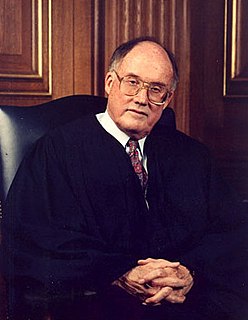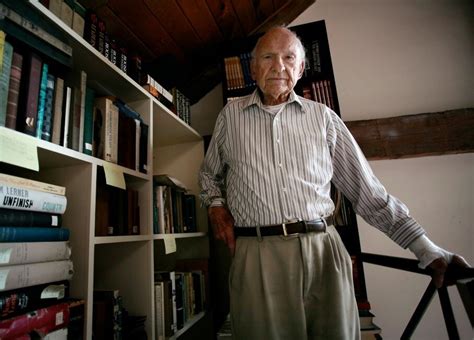A Quote by William Rehnquist
It is impossible to build sound constitutional doctrine upon a mistaken understanding of Constitutional history... The establishment clause has been expressly freighted with Jefferson's misleading metaphor for nearly forty years... There is simply no historical foundation for the proposition that the framers intended to build a wall of separation... The recent court decisions are in no way based on either the language or intent of the framers.
Quote Topics
Based
Been
Build
Clause
Constitutional
Court
Court Decision
Decisions
Doctrine
Either
Establishment
Establishment Clause
Forty
Forty Years
Foundation
Framers
Historical
History
Impossible
Intended
Intent
Jefferson
Language
Metaphor
Misleading
Mistaken
Nearly
Proposition
Recent
Separation
Simply
Sound
Understanding
Wall
Way
Years
Related Quotes
Conservatives who believe that the Constitution should be interpreted according to the plain meaning of its language and the original intent of the Framers have long been troubled by the court's decisions expanding the commerce clause to authorize Congress to regulate the most local of matters within a state's borders.
Let us face reality. The framers (of the Constitution) have simply been too shrewd for us. They have outwitted us. They designed separate institutions that cannot be unified by mechanical linkages frail bridges(or) tinkering. If we are to turn the founders upside down we must directly confront the Constitutional structure they erected.
If our free society is to endure, those who govern must recognize human dignity and accept the enforcement of constitutional limitations on their power conceived by the Framers . . . . Such recognition will not come from a technical understanding of the organs of government, or the new forms of wealth they administer. It requires something different, something deeper-a personal confrontation with the wellsprings of our society.
You don’t try to build a wall, you don’t set out to build a wall. You don’t say ‘I’m going to build the biggest, baddest, greatest wall that’s ever been built.’ You don’t start there… You say ‘I’m going to lay this brick as perfectly as a brick can be laid.’ And you do that every single day and soon you have a wall.
































